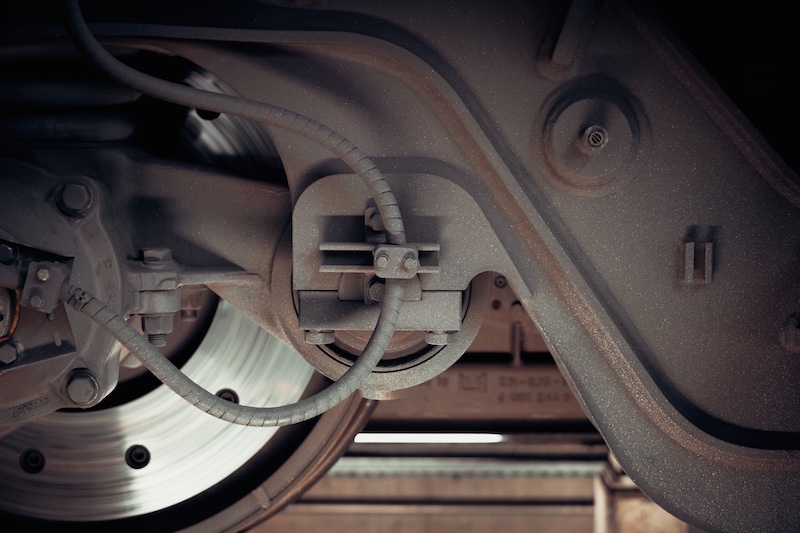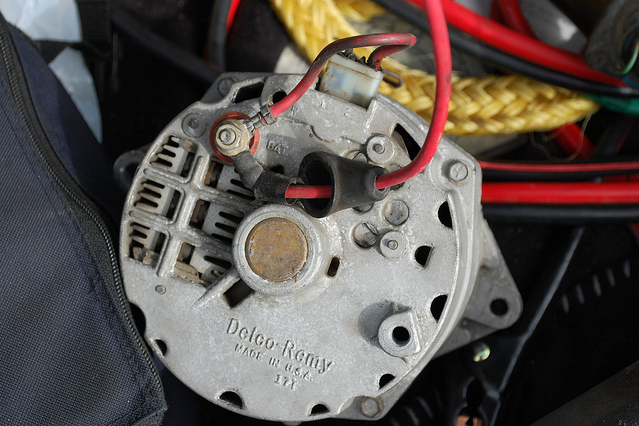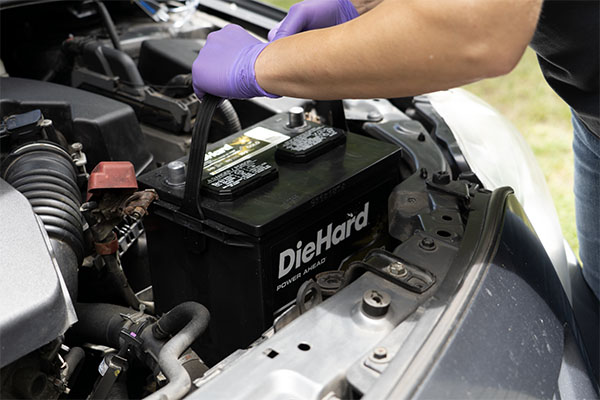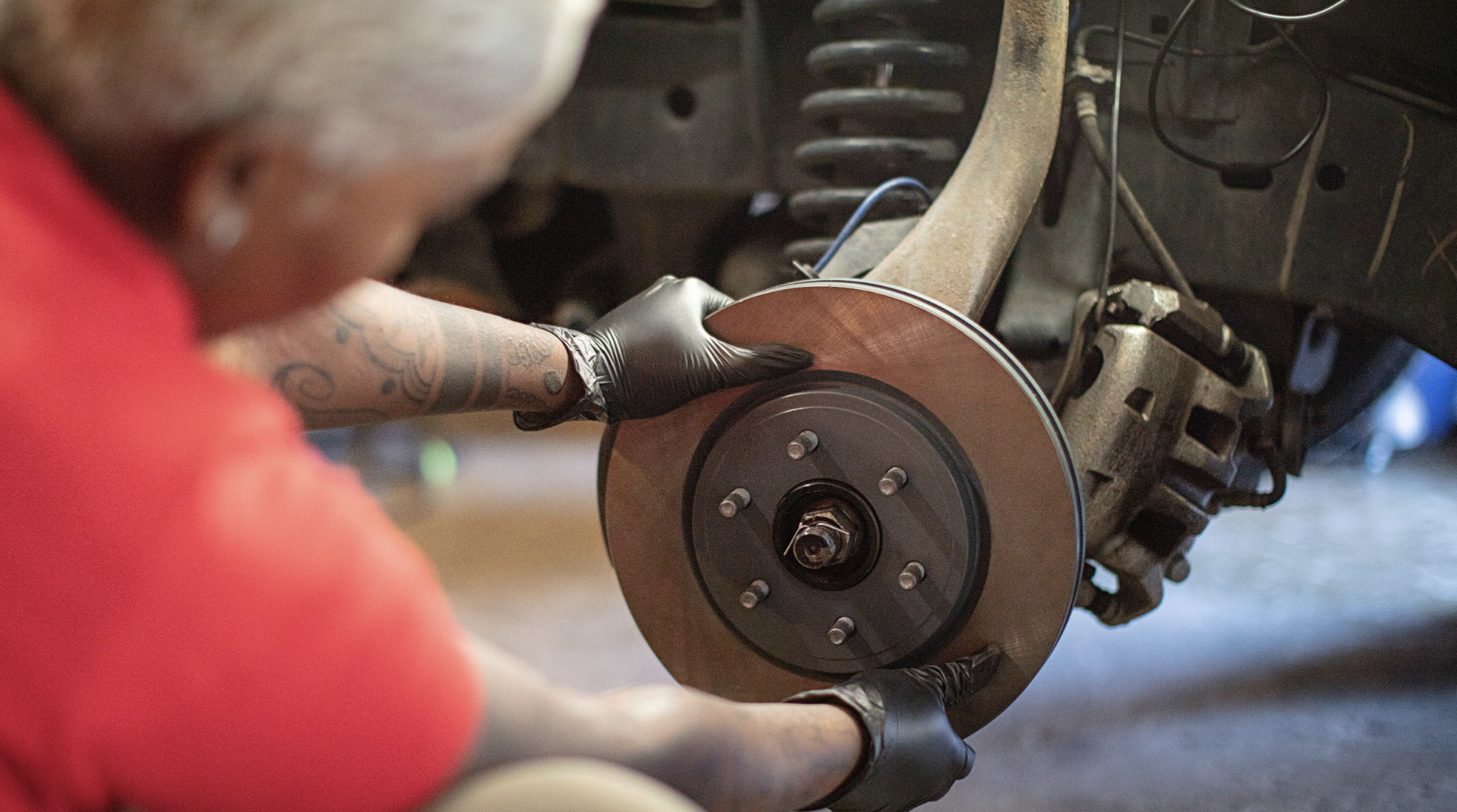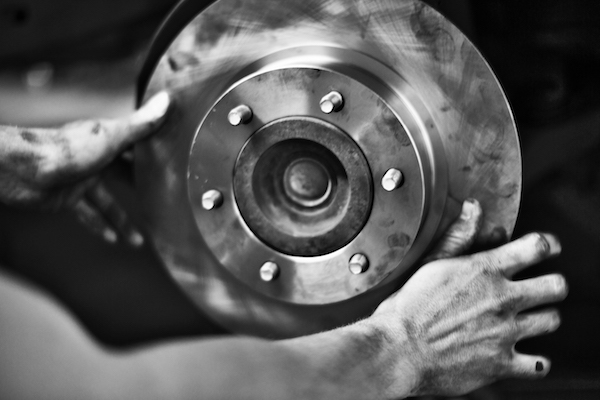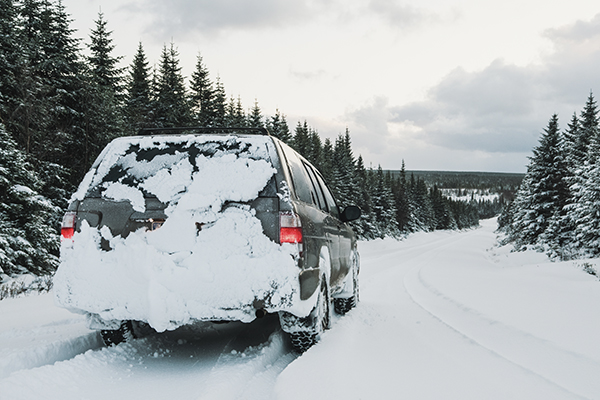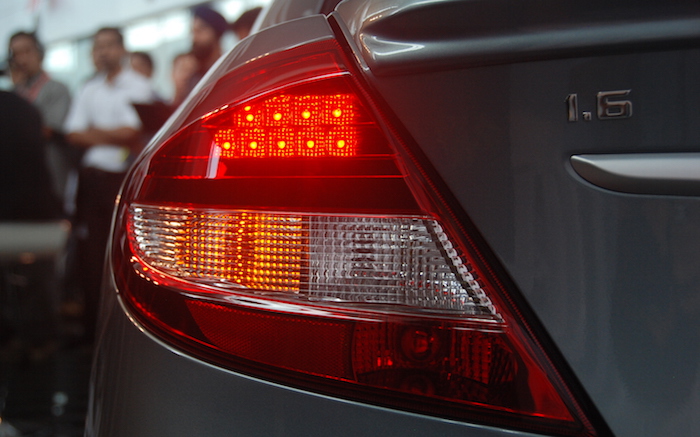Stepping on the brake pedal should quickly slow down your ride, not create an embarrassing shriek every time you stop. While there's no handy diagnostic code to explain your squealing brakes, there are a few likely culprits to help narrow down your search. Here's a look at everything that could be wrong with your squealing braking system.
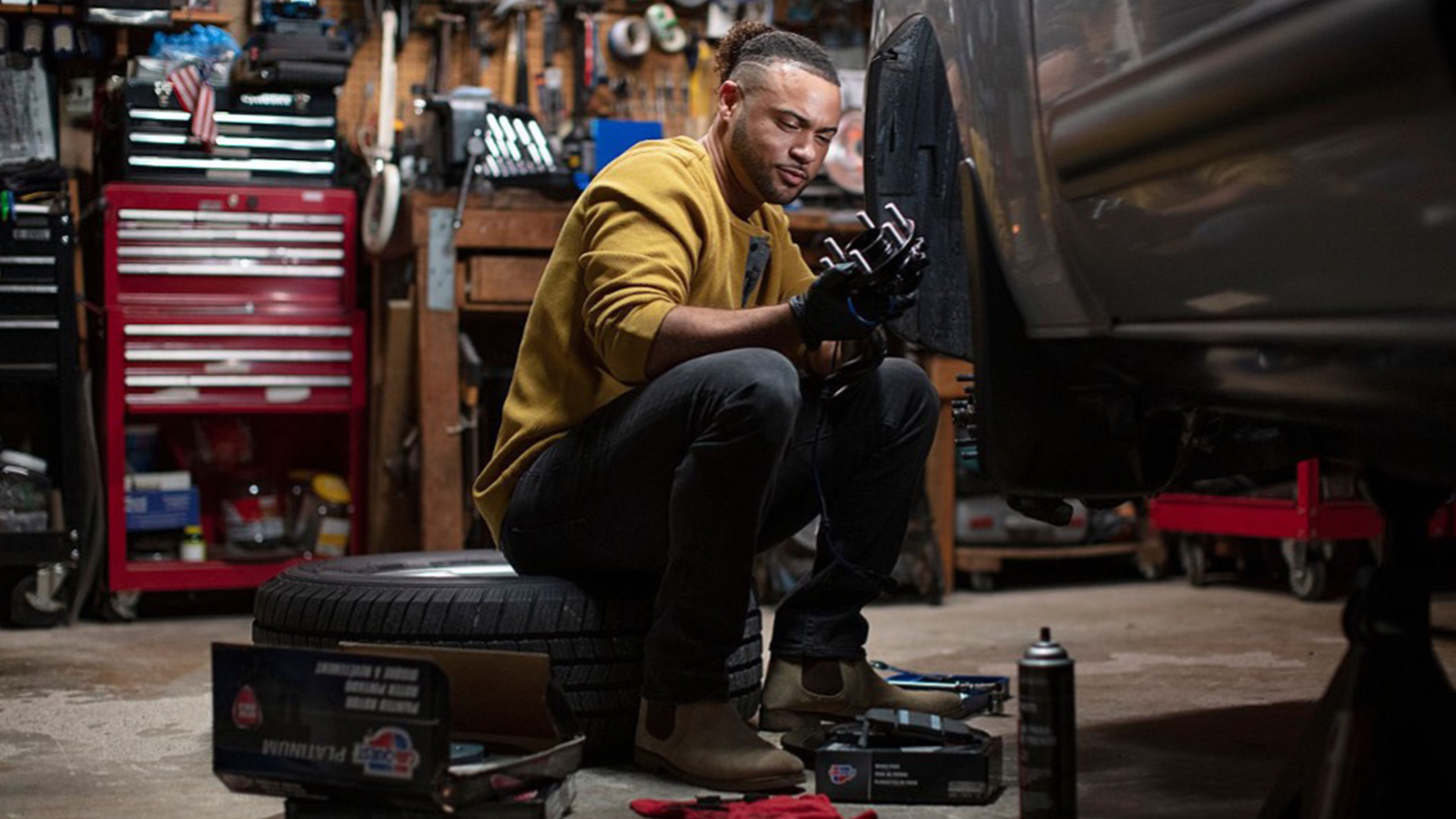
Source | Advance Auto Parts
Why Do My Brakes Squeal?
That terrible noise could be caused by several issues. Some are not too worrisome, just a warning for later, but others are serious and need to be checked out right away.
- Worn pads – Brake pads consistently stop your vehicle, even as they wear down with use. Rather than braking until the pad is suddenly gone, manufacturers add a wear indicator. Once the pad gets close to the end of its service life, a little metal tab on the pad contacts the brake rotor, creating a screech like steel nails on a metal chalkboard. That's your sign it's time to replace the pads.
- Worn-out pads – Let's say you ignored the above wear indicator. The pads will continue to wear down until the pad friction material is gone. At that point, the calipers are pushing the pad backing plate into contact with the rotor. What you get is a squeal and a loud grinding noise, as well as inconsistent and reduced braking. This is super dangerous, so don't be that person.
- Heat glazed – Squealing brake pads aren't just for old brakes. If you head down the continental divide and are constantly on the brakes for the next several miles, your brakes will likely overheat. Brakes operate in hot temperatures, but too hot causes a tempering effect on the brake pad that turns them hard and smooth. Even with a thick pad remaining, the heat glazed pads will shriek on the rotor and have reduced brake efficiency.
- Lack of grease – That shim on the back of the pad helps reduce noise in the brake system. Like many vehicle systems, it works best with some grease. A stuck shim could cause pad contact with the rotor, leading to unwanted brake noises. When swapping in new pads, apply a small amount of brake pad grease to the back to keep everything moving properly and stay unstuck.
- Pebbles in the pad – If you took your Mitsubishi Mirage off-roading through muddy terrain, it might have picked up a few hitchhikers while out in the unfamiliar territory. Tiny pebbles get picked up when the wheel submerges, where they slip in between the pad and rotor. The extremely close tolerances – measured in microns – mean the grit won't become unstuck on its own. Every time you step on the brake pedal, you'll hear the pads and rotors grinding the corners off the pebbles and chewing up your brakes. A professional inspection may or may not reveal a stuck pebble as the cause, but sometimes simply removing pads for the inspection will dislodge a pebble.
Is it Safe to Drive with Squealing Brakes?
Let's make one thing clear: proper brakes operation is a serious thing, and you need to have them inspected as soon as symptoms appear for the safety of you and everyone else on the road. That being said, the severity of the issue can depend on what is causing the noise.
If the wear indicator just started making a ruckus, you can wait for the weekend and swap out the pads on your own time. If your pads have started grinding into the backing plate, you need to immediately stop and get a friend to take you to the nearest Advance location for new brake pads. It's also important to replace your rotors with your brake pads. Your new pads need to bed into the rotors, and if you're using the same old rotors, you can introduce new problems like reduced performance or a pulsation in the brake pedal. Replacing the rotors is also the best way to ensure your brake job lasts a long time.
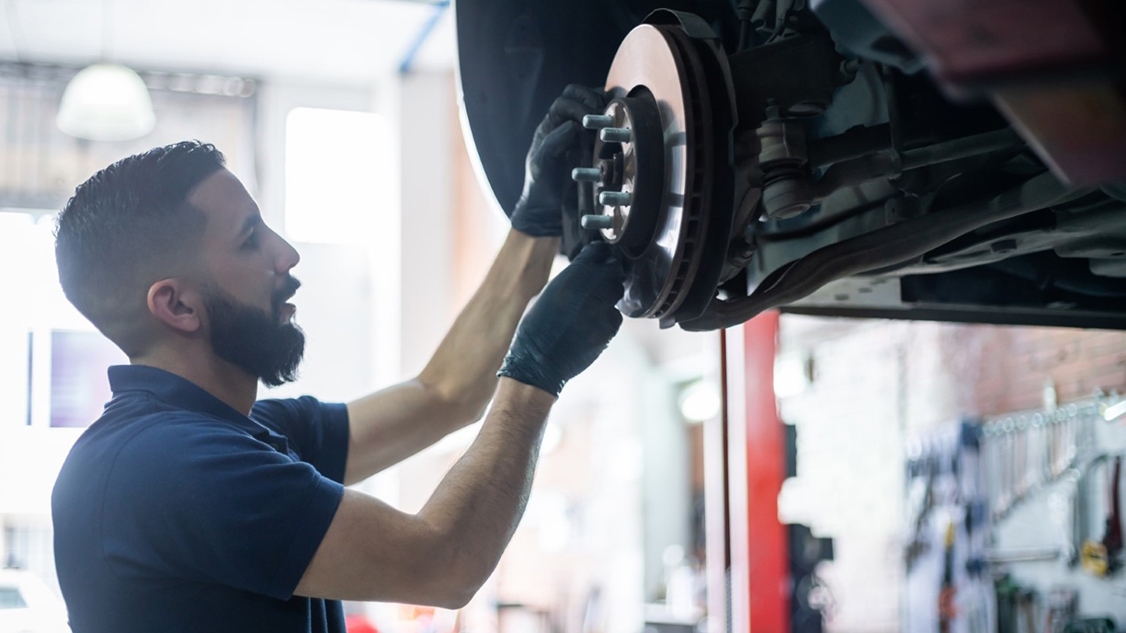
Source | Getty Images
How To Get Brakes to Stop Squealing
Tired of that noise yet? Fortunately, squealing brakes is usually a quick and affordable fix. Here's what to do.
- Replace the brake pads – This is a simple task easy enough for beginners with a few basic tools. Just get the right brake pads, set aside about an hour, and you'll fix that awful noise. We recommend you replace the brake rotors at the same time.
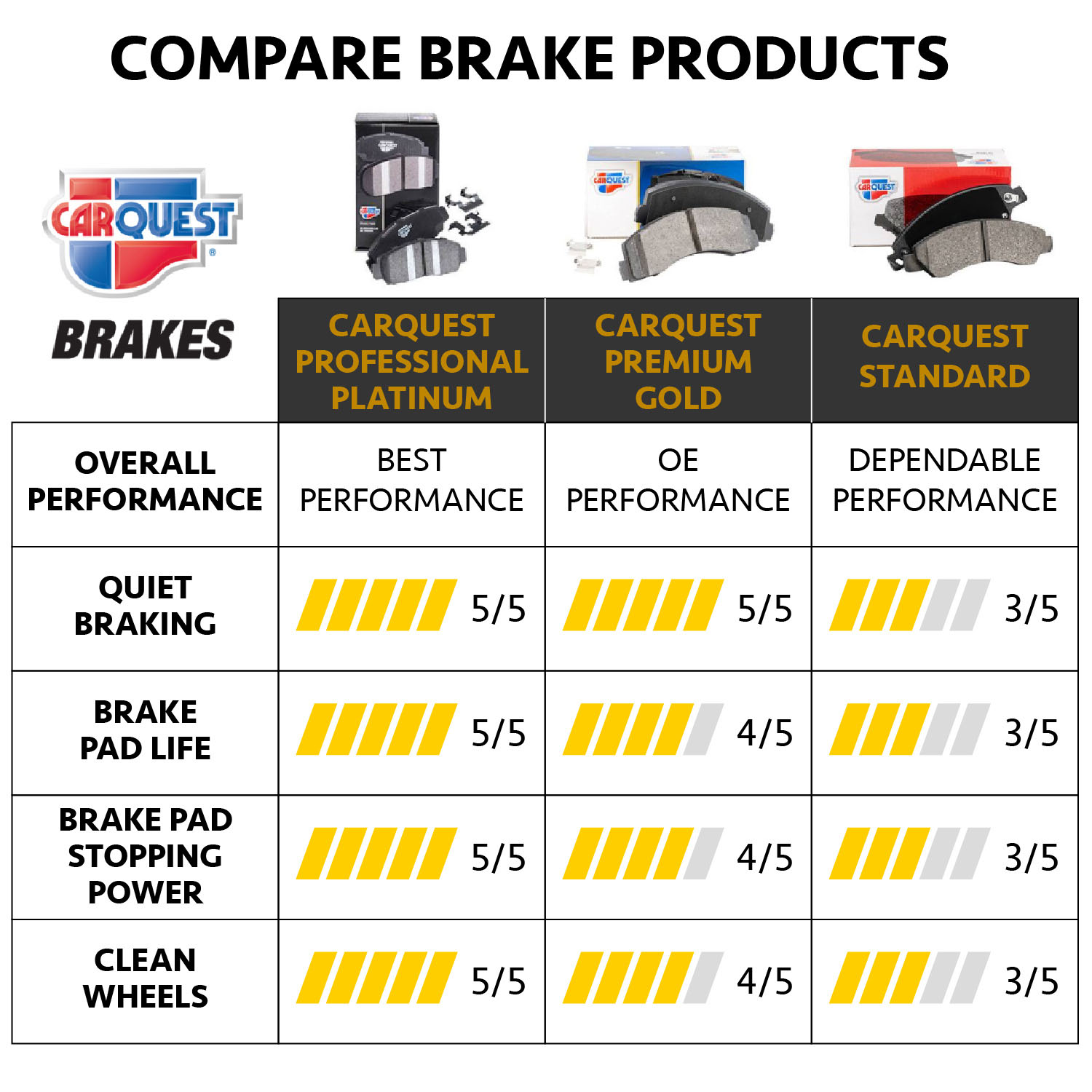
- Sand off the glaze – If you overheat your brakes, you might be able to eliminate brake squeal by sanding the pad and rotor surfaces with 320 grit aluminum oxide sandpaper. Keep in mind, this is a temporary fix since the pads were likely damaged by high heat all the way through.
- Lube moving parts – Pull out your noisy brake pads and apply lithium or molybdenum grease (but not both) on the back of the pad shim where the piston contacts and on the caliper abutment clips and pad mounting tabs. Essentially, put a thin layer of grease on anything that moves or slides, just be sure not to get any on the pad or rotor surface.
- Clean it up – If you have little pebbles in there grinding away every time you stop, your fix is almost free. Remove the brake pads and clean the pads and rotor surfaces with a good quality car wash soap followed by isopropyl alcohol. Alternatively, you can skip the two-step process and use brake cleaner and the precautions on the label. Reassemble the brake components (using proper grease), and the annoying squeal should be gone.
Visit our webpage to add vehicle and get started on the repair or stop by local store for assistance from a knowledgeable AAP Team Member.
Have you tackled this problem lately, or are you still dealing with brake squeal on every drive? Let us know what worked for you in the comments below.

